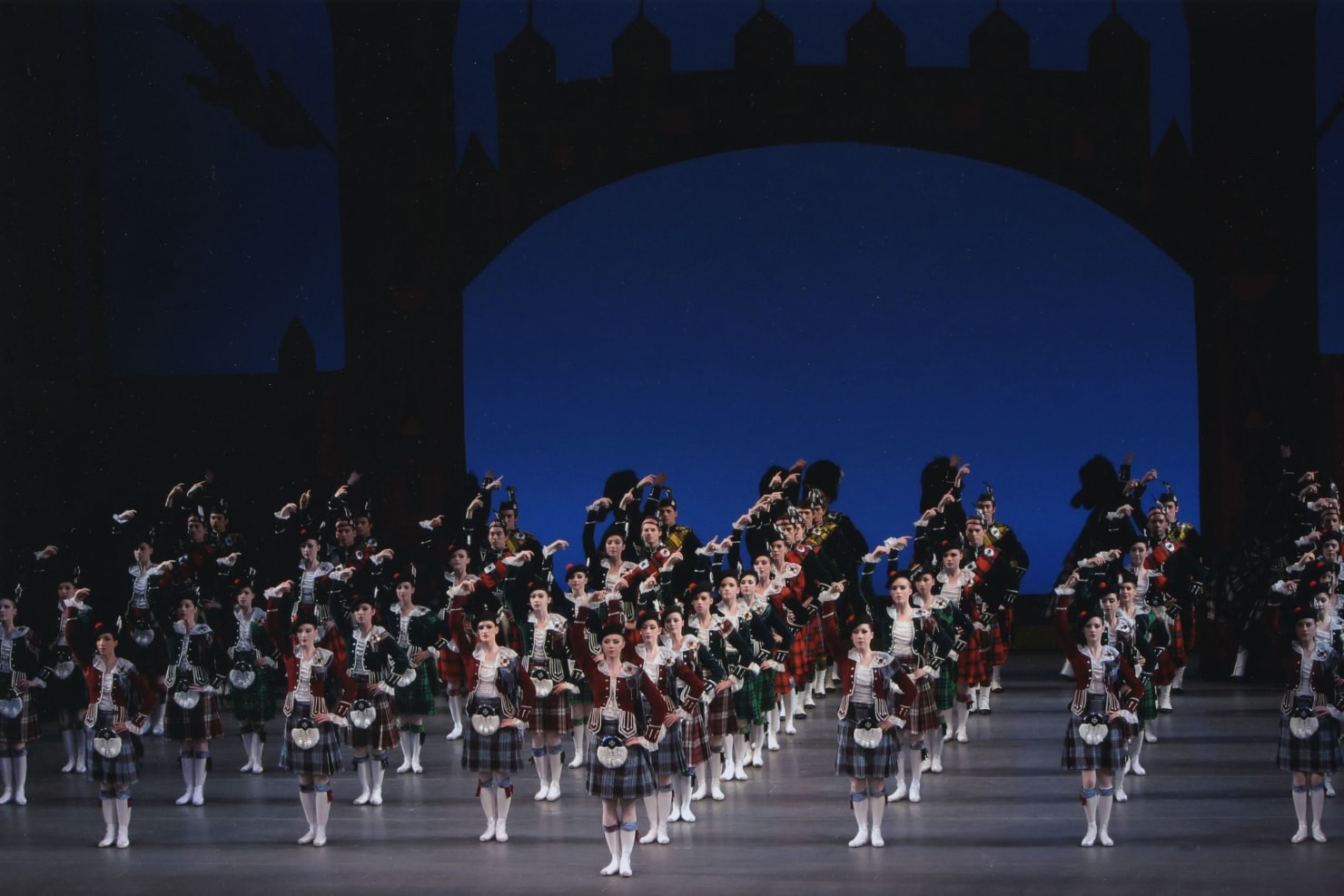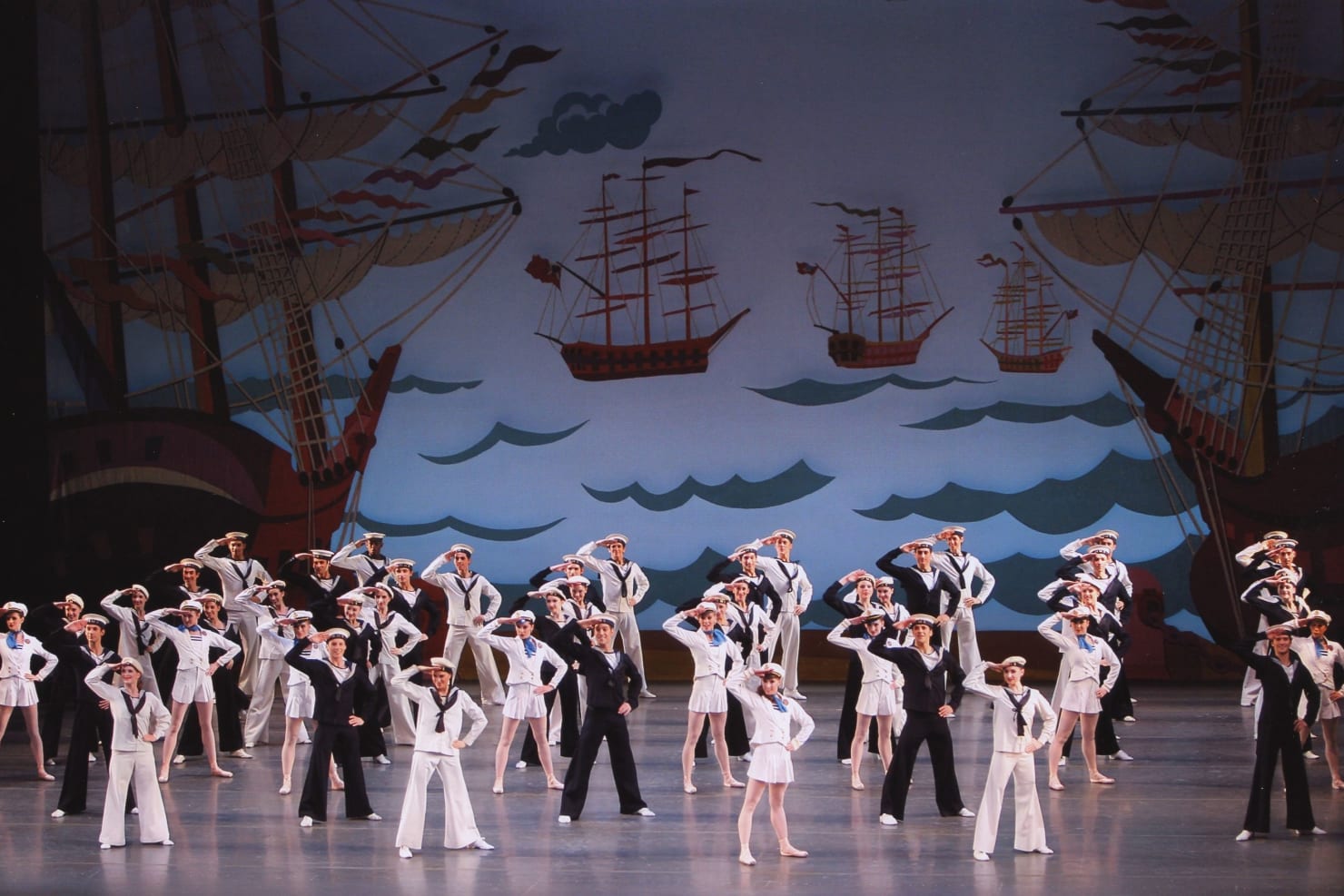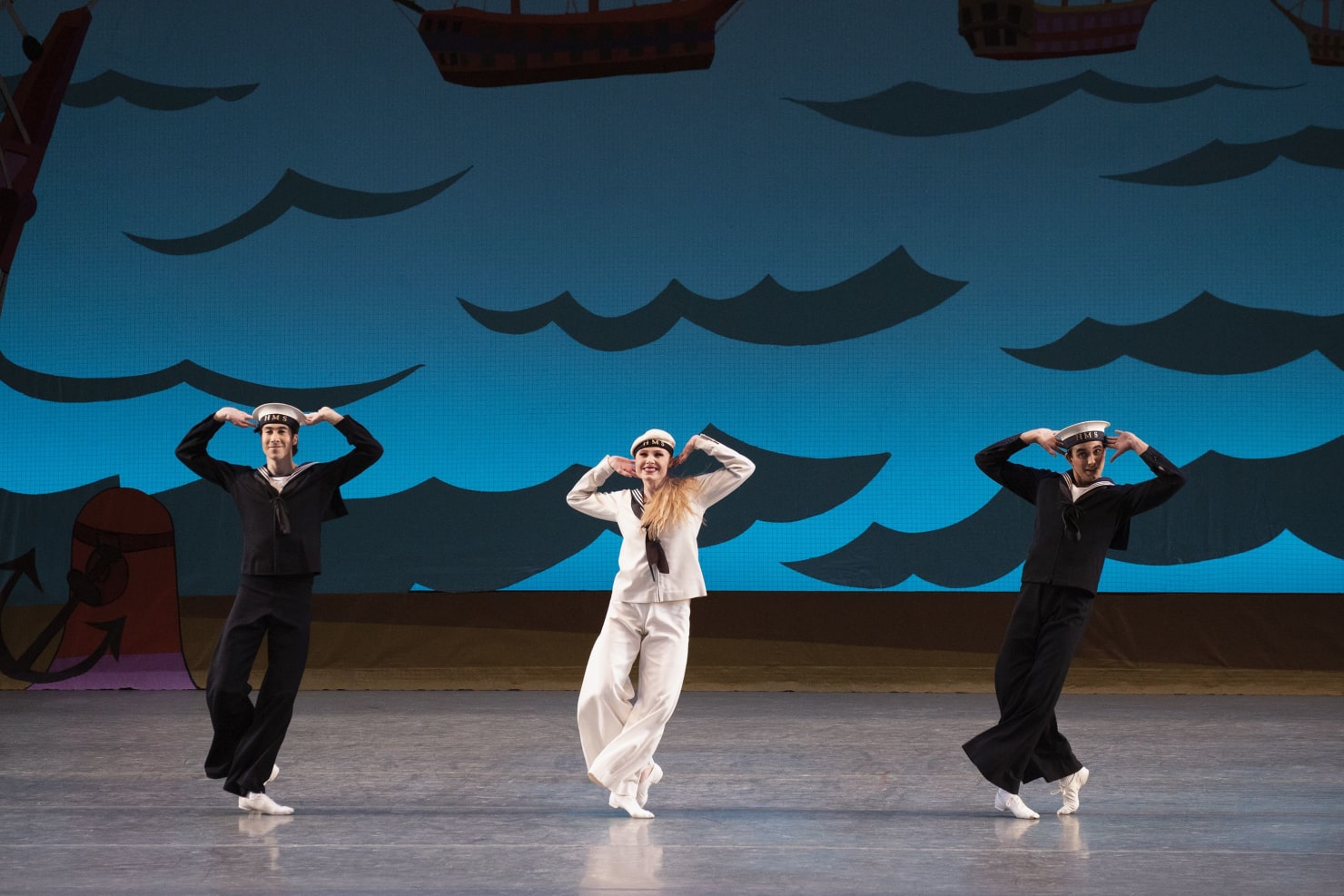
Behind the Scenes: Union Jack
September 17, 2019
It takes a sense of cheek — and a certain bravado — to celebrate America’s Bicentennial with a grandiose ballet honoring all things United Kingdom. But that’s exactly what the “amiably Anglophiliac” Lincoln Kirstein envisioned as New York City Ballet’s 1976 Season approached. The resulting piece, Union Jack, grew as much from the musical folk traditions of the region as it did from “Kirstein’s heartfelt desire to demonstrate to the United States that a corner of the American consciousness remained ‘forever England,’” according to Balanchine biographer Richard Buckle.
Similar to the patriotic American ballet Stars and Stripes, Kirstein and Balanchine went big. Union Jack features a whopping 74 dancers (and one donkey) and draws upon nearly the entire Company. NYCB’s Director of Production Marquerite Mehler says, “No other company can do what we’re doing when you have all of those dancers out there doing the same thing. It’s so much fun.”
To get the backdrop ready to frame all those dancers, Mehler and her crew are preparing a new set for Union Jack’s return. “It’s very exciting,” she says. “It had been on our radar for a while that the next time [the ballet] happened it needed to be done.” The New York Public Library for the Performing Arts, which houses the production’s original set renderings, sits just across the plaza from the David H. Koch Theater on Lincoln Center’s campus. “It just happened to be that those renderings were about to go away for archiving and maintenance purposes, so the timing was perfect,” Mehler says.
Mehler and her team reviewed scenic designer Rouben Ter-Arutunian’s drawings and found a curious note that had to do with the last section’s focus on the Royal Navy. “Rouben had described the scenery as having a wet look — wet and shiny,” she says. To figure out how to make a set look wet, Mehler reached out to NYCB’s paint shop. “We talked about the structure of it,” she says. “It was a little bit like a historical mission as well, because they were looking at some of the techniques and trying to figure out the reasoning behind them.”
The shop sent over several samples — iridescent shimmers, clear glosses, and more — and together they figured out what would look closest to what Ter-Arutunian would have wanted. “It’s being built off site and then once it comes to us, we’ll either store it here or in our warehouse in New Jersey,” she explains.






